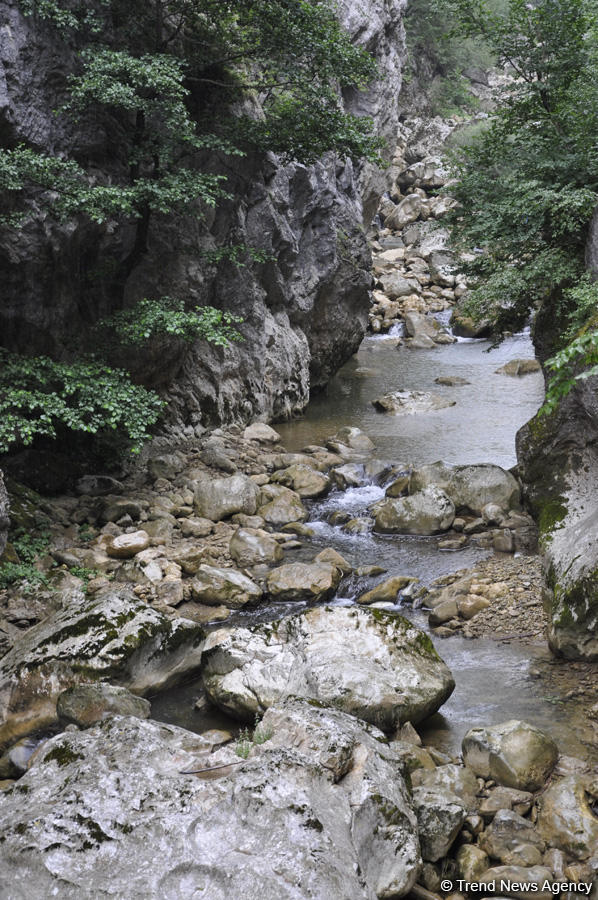BAKU, Azerbaijan, Dec. 2
By Ilhama Isabalayeva - Trend:
Occupation policy pursued by Armenia causes serious damage to Azerbaijan’s nature, biological diversity and ecological situation of the entire region, leading to consequences that foster environmental degradation, department head of the Azerbaijani Ministry of Ecology and Natural Resources Mutallim Abdulhasanov told Trend Dec. 2.
Abdulhasanov noted that the Kura and Araz rivers are the main water bodies in Azerbaijan.
“Because three quarters of Azerbaijan’s territory are located in the lower relief of the Kura basin, which is Azerbaijan’s biggest water body, transboundary pollution of the river creates environmental tension,” the department head added.
Abdulhasanov emphasized that the wastewater of industrial facilities of big cities in Armenia, not being treated, is discharged into rivers, as a result, water basins are polluted.
“During inspections, pollution of these rivers with copper, molybdenum, zinc, phenol, lead and other substances 10 times higher than the norm was observed,” the department head said. “Future continuation of projects in the industry of this country will further pollute Azerbaijan’s and Iran’s rivers, and seriously threaten the environment of the entire region. In order to study the situation of pollution of transboundary rivers by Armenia, an analytical laboratory with modern equipment operates in the Araz river basin, and the relevant structures constantly monitor the situation.”
Abdulhasanov reminded that Azerbaijan ratified the Helsinki Convention on the Protection and Use of Transboundary Watercourses and International Lakes (Water Convention), however, the fact that Armenia didn’t join this Convention makes it impossible to resolve these issues in regional and multilateral format.
At the same time, the occupation by Armenia of a part of the internationally recognized Azerbaijani territories creates problems in use of water resources, the department head added.
Abdulhasanov noted that water bodies in the occupied Azerbaijani territories are subject to great anthropogenic influence.
“In these territories, small and big water sources are being destroyed, and as a result, a unique territory is seriously affected,” the department head said. “Ten reservoirs went out of order in the territories occupied by Armenia, including the Sarsang reservoir, with the volume of 560 million cubic meters of water, designed for irrigation of more than 100,000 hectares of cultivated land. Located in the occupied zone, the Sarsang reservoir is used as a means of environmental pressure.”
“Namely that’s why, according to the results of the PACE mission’s stay in Azerbaijan in 2015, a resolution was adopted on Jan. 26, 2016, which reflected the fact that residents of Azerbaijan’s border regions are deliberately deprived of water,” Abdulhasanov added. “Considering the gravity of this humanitarian problem, the Assembly called on the Armenian authorities to immediately withdraw the armed forces from the above mentioned region, ensure research by independent engineers and hydrologists and stop using water as a means of political pressure.”
The conflict between the two South Caucasus countries began in 1988 when Armenia made territorial claims against Azerbaijan. As a result of the ensuing war, Armenian armed forces occupied 20 percent of Azerbaijan, including the Nagorno-Karabakh region and seven surrounding districts.
The 1994 ceasefire agreement was followed by peace negotiations. Armenia has not yet implemented four UN Security Council resolutions on withdrawal of its armed forces from Nagorno Karabakh and the surrounding districts.






